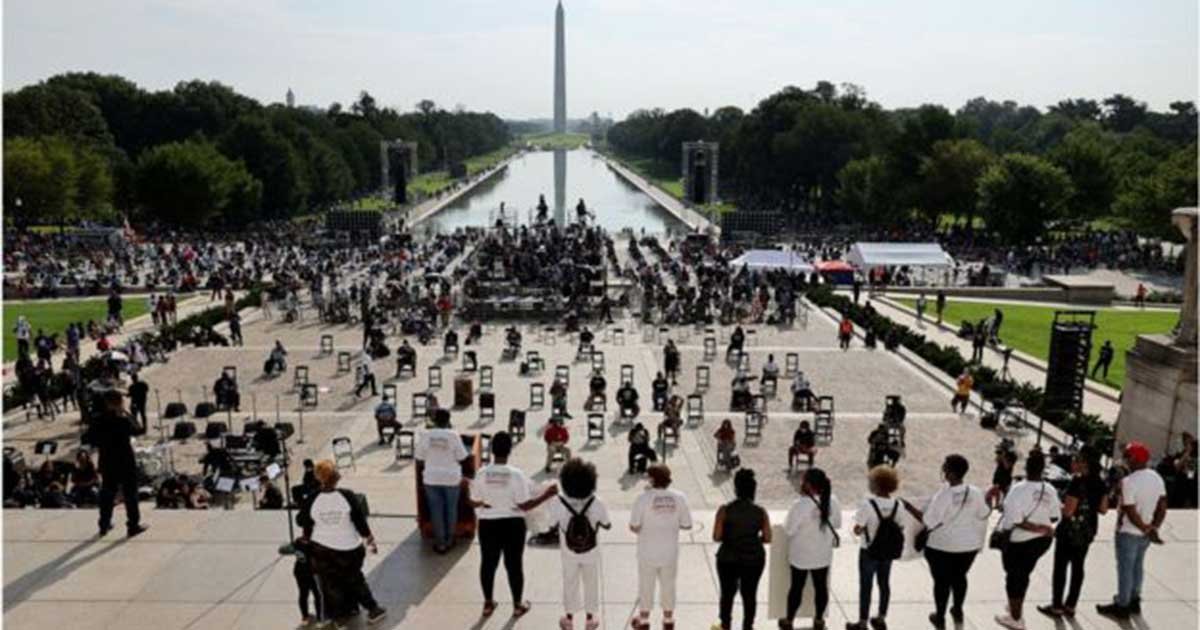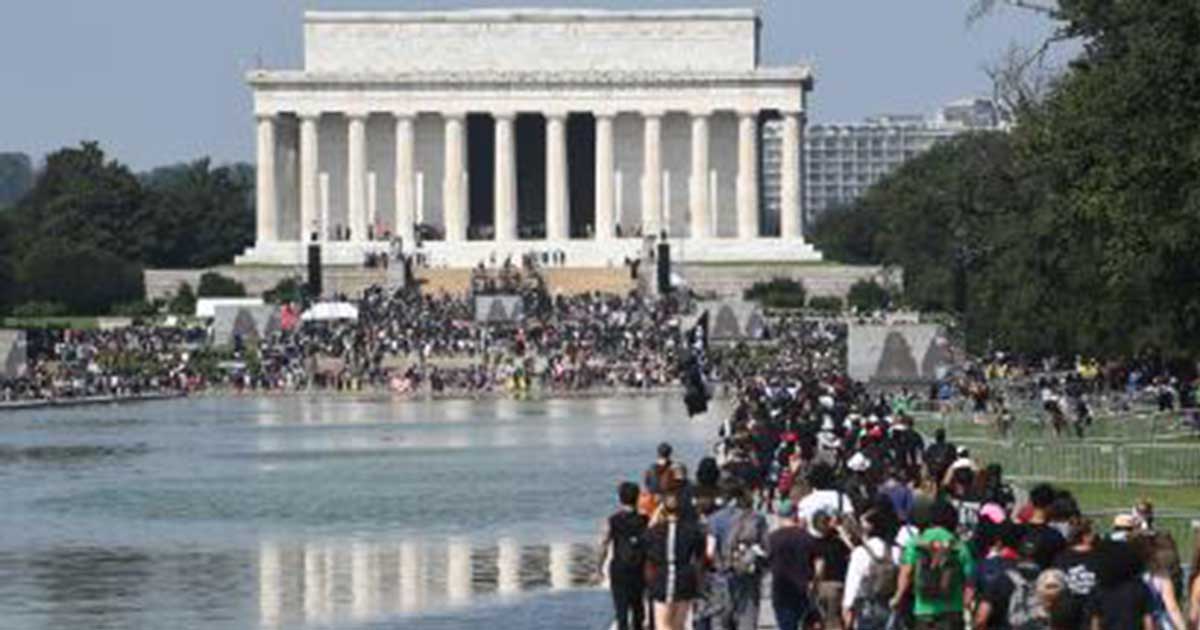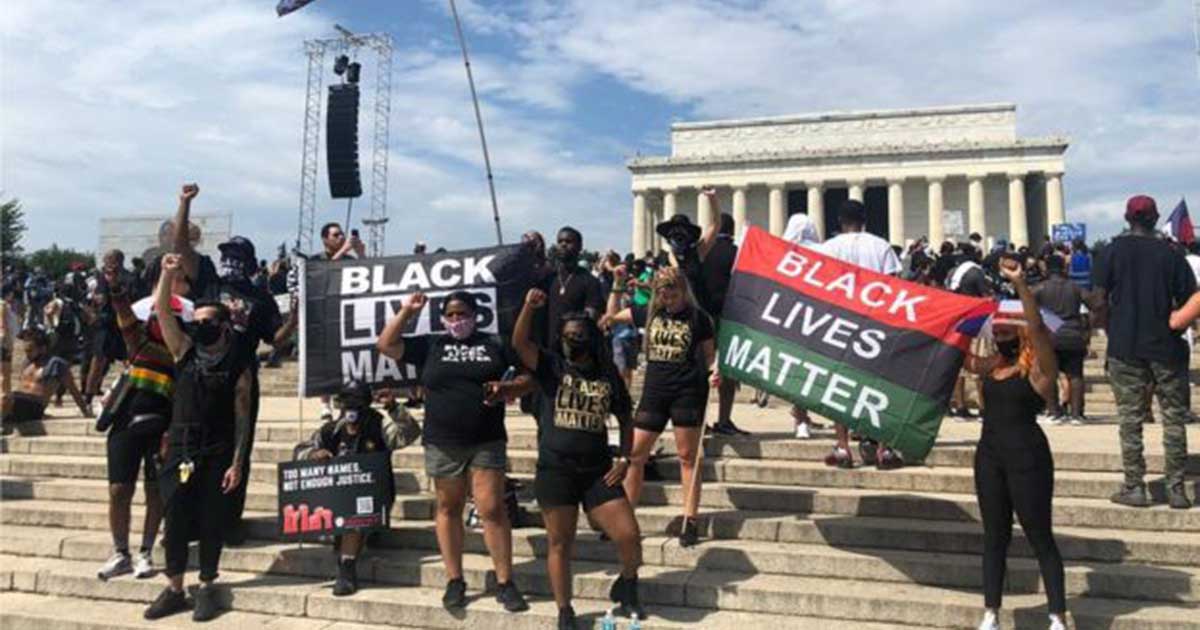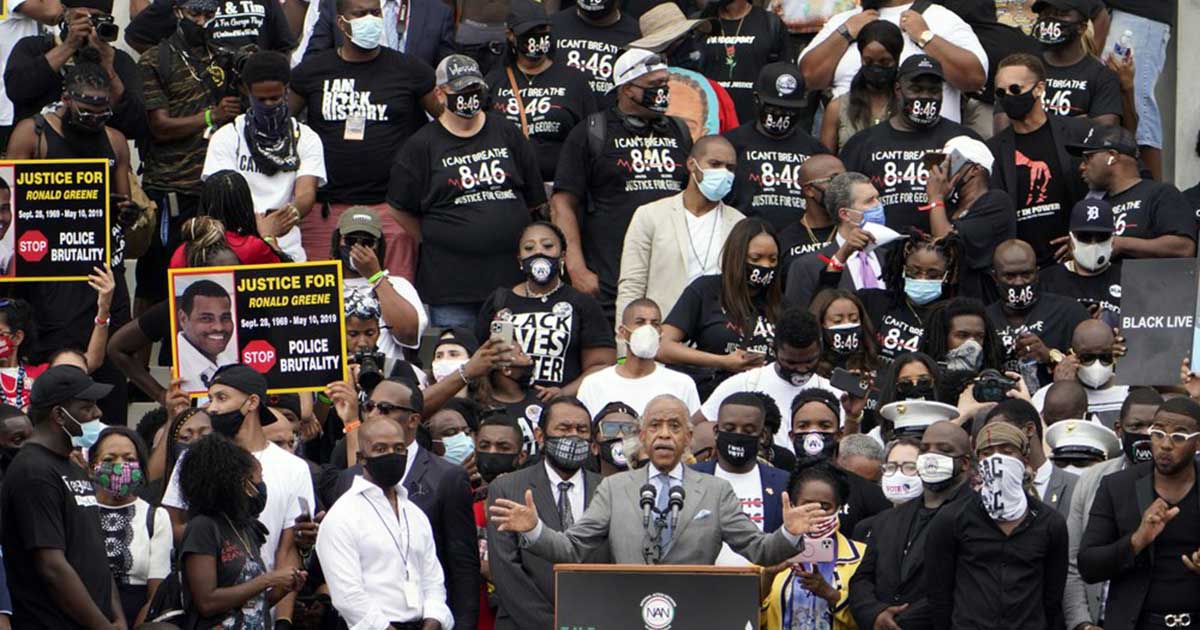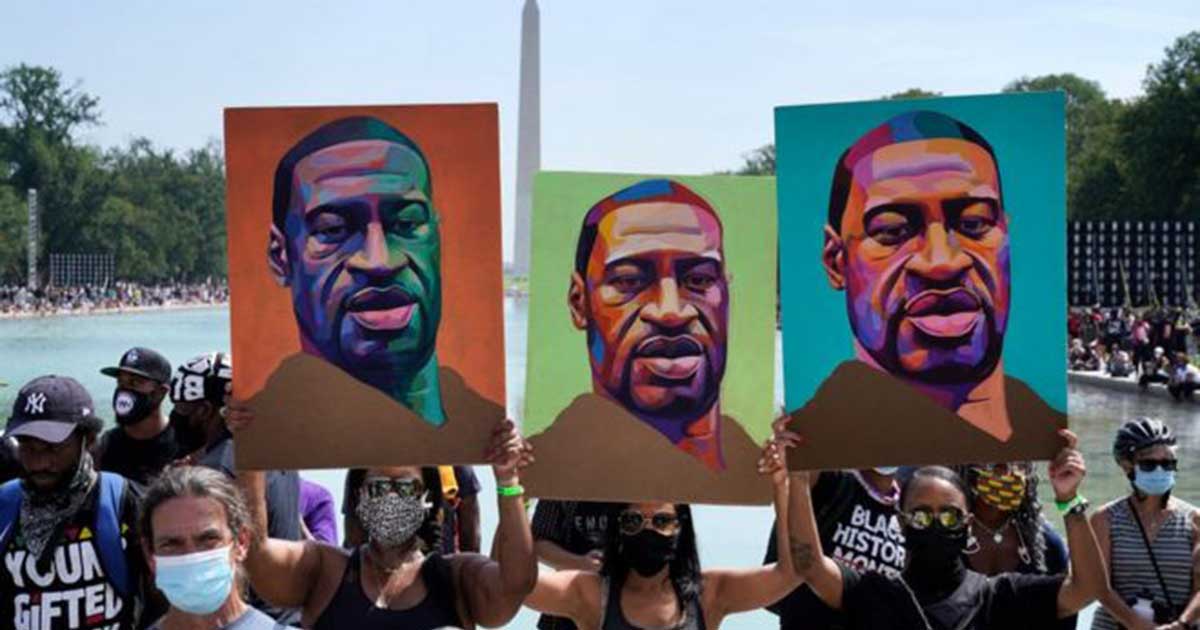Thousand of people gathered in Washington DC to commemorate 1963 civil rights movement, as well as to protest the recent violence involving African Americans and the police.
“We will not be a footstool to oppression,” said Jacob Blake’s sister, Letetra Widman in front of the Lincoln Memorial on Friday.
“Black America, I hold you accountable. You must stand. You must fight, but not with violence and chaos.”
New York City’s public advocate Jumaane Williams addressed the march attendees shortly after the program began.
“I want to give space for Black people in the crowd to say they are not OK,” he said.
“We are like the nameless grandmothers who got in the streets and said, ‘We will make you live up to what America says she is. We are here. We’re not going anywhere.”
Activist Frank Nitty said he had walked 750 miles for 24 days from Milwaukee, Wisconsin, to Washington to attend the march, and was given the opportunity to speak in front of the audience about persistence in the fight for justice.
“Are y’all tired? Because I’m tired,” said Nitty, “They think this is a negotiation, but I came here to demand change. My grandson ain’t gonna march for the same things that my granddaddy marched for. This is a revolution.”
A 33-year-old attendee from DC, Jerome Butler echoed Nitty’s sentiment.
“My hope is that my son doesn’t have to be out here in another 50 years protesting the same thing,” said Butler.
Dubbed the “Commitment March: Get Your Knee Off Our Necks,” the event was organized by Reverend Al Sharpton, who made the announcement when he delivered a eulogy for George Floyd on June 4.
In June, the House approved a police reform legislation titled the George Floyd Justice in Policing Act of 2020.
It aims to overhaul qualified immunity for law enforcement, prohibit no-knock warrants in federal drug cases, ban chokeholds at the federal level and establish a national registry of police misconduct, among other provisions.


